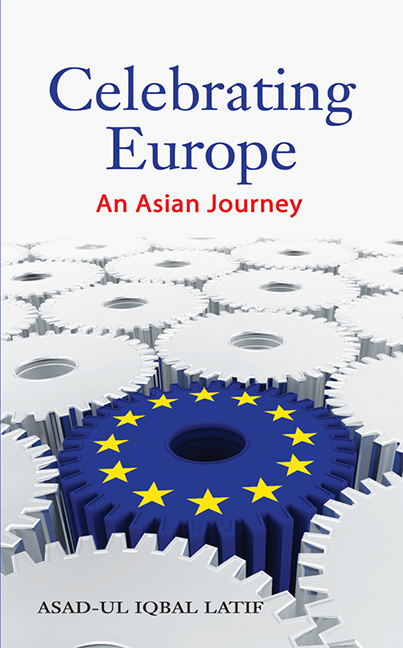Book contents
- Frontmatter
- Dedication
- Contents
- Foreword
- Acknowledgements
- Introduction: Europe
- 1 Europe Abroad
- 2 Gentiles
- 3 The Berlin Wall
- 4 Soviets of the Mind
- 5 The Secular Soul
- 6 The Leopard's Italy
- 7 England
- 8 Champagne France
- 9 Two Bengali Greeks
- 10 The Polish Hospital
- 11 Postmodern Europe
- Bibliography
- Index
- About the Author
1 - Europe Abroad
Published online by Cambridge University Press: 21 October 2015
- Frontmatter
- Dedication
- Contents
- Foreword
- Acknowledgements
- Introduction: Europe
- 1 Europe Abroad
- 2 Gentiles
- 3 The Berlin Wall
- 4 Soviets of the Mind
- 5 The Secular Soul
- 6 The Leopard's Italy
- 7 England
- 8 Champagne France
- 9 Two Bengali Greeks
- 10 The Polish Hospital
- 11 Postmodern Europe
- Bibliography
- Index
- About the Author
Summary
The East is a career
— Benjamin DisraeliSheikh Abdullah was a prosperous landowner and trader in the Hooghly district of undivided Bengal. He was a devout Muslim. In the course of his business pursuits during the British Raj, he once had to meet an Englishman. What would happen if he had to shake the pork-eater's hand, he wondered darkly. He asked his wife, a kindly matriarch who made certain that a portion of her husband's income found its way to the poor in their village. Charity needed an income, she reasoned. So she advised him to shake the dreaded hand, strike a deal, come back home, wash himself seven times with soil, pray, and hope to be absolved. So he did.
Mohamed Abdul Latif, one of their eight children, was born in 1921. He studied at Hare School in Calcutta. Set up in 1818 by two reformers — the Scottish David Hare and the Bengali Raja Ram Mohun Roy — the school made available in the vernacular all that Western education offered in English during the Raj.
Then came London. Arriving there in 1938, he was struck by the freedom of speech the British enjoyed. He decided to exercise his own freedom of speech at the London School of Economics, where he had enrolled.
One of his teachers was Professor Harold Laski. Latif could not bear Professor Laski's Fabian Socialism because, by urging the rich to coexist conscientiously with the poor, it forced the poor to coexist unconscientiously with the rich. Fabian fables were exactly what capital needed to keep real socialism at bay, he thought. Yet Professor Laski was being feted by the world. One day, Latif let go in the students' room: “Laski is a swine.”
The professor heard about the abuse. Accustomed to the adulation of his students, he was shocked. The teacher in him called out, no doubt, for disciplinary action, but the man of ideas in him sought an explanation for the outburst. He asked Latif to see him. When he did, Laski asked him whether he would apologize for his appalling conduct. Latif apologized for his conduct, but not for his views.
- Type
- Chapter
- Information
- Celebrating EuropeAn Asian Journey, pp. 8 - 22Publisher: ISEAS–Yusof Ishak InstitutePrint publication year: 2012



